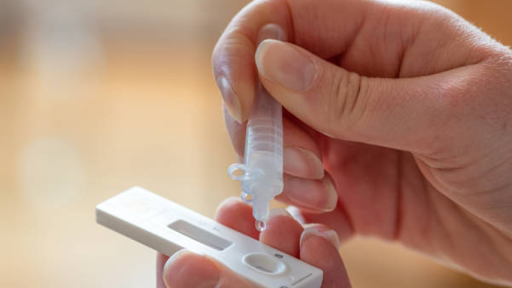Sexual health is a key component of overall well-being, and getting tested regularly is essential for maintaining it.
However, despite the importance of regular testing, many people avoid it due to the discomfort, cost, and stigma surrounding STD screenings. Unfortunately, this reluctance leads to undiagnosed infections and further health risks.
- The fear of judgment at clinics
- The high costs of traditional testing
- Long wait times for results
But there’s a solution. STD home tests are changing the way we approach sexual health by offering a quick, private, and affordable alternative. In this article, we’ll dive into how these tests are revolutionizing sexual health care.
1. Removing Barriers to Testing
For many, the stigma around STD testing can be a significant barrier. Traditional testing often requires visiting a clinic, filling out forms, and engaging in potentially awkward conversations with healthcare professionals. This process can be uncomfortable and intimidating, leading many individuals to avoid testing altogether.
At-home STD tests eliminate these barriers. With the ability to test in the privacy of your own home, individuals no longer need to worry about embarrassment or facing judgment. These tests give people the confidence to take control of their sexual health, encouraging more frequent and proactive testing.
2. Making Testing Affordable and Accessible
In the past, STD testing was often associated with high costs, making it out of reach for many individuals. At-home testing has significantly reduced the cost, providing an affordable alternative to traditional clinic visits. This price reduction has made STD testing more accessible to a wider range of people, ensuring that financial constraints no longer prevent individuals from getting tested.
By offering affordable options that can be used from home, various companies have opened up access to sexual health care for those who may have otherwise gone without it.
3. Promoting Regular Testing for Better Health
Regular STD testing is essential for maintaining good sexual health, but it’s often something that people overlook or avoid due to time constraints or discomfort. These STD tests encourage regular testing by making the process easy, quick, and convenient.
These tests are designed to be used frequently, allowing individuals to stay on top of their sexual health with minimal disruption to their daily lives. Regular testing helps detect infections early, which is crucial for preventing the spread of STDs and minimizing the risk of long-term health complications.
4. Empowering Individuals to Take Control of Their Health
One of the most powerful aspects of at-home STD tests is the empowerment they provide. People no longer have to rely on healthcare providers or clinics for testing. Instead, they can take control of their sexual health by testing whenever they need to, at their own pace, and in the comfort of their homes.
This independence allows individuals to make informed decisions about their health, promoting a sense of ownership over their well-being. It also fosters a culture of self-care, where individuals are more proactive about their health and more likely to seek treatment when necessary.
5. Quick Results for Immediate Action
With the rise of rapid testing technology, at-home STD tests now provide results within minutes, offering a level of convenience and speed that traditional methods cannot match. Immediate results allow individuals to take action right away, whether it’s seeking treatment or sharing the information with a partner.
This quick turnaround time helps reduce anxiety, allowing people to address potential health concerns immediately. It also minimizes the waiting period, which is often one of the most stressful aspects of STD testing.
6. Helping to Reduce the Spread of STDs
These tests play a significant role in reducing the transmission of sexually transmitted infections. Since many STDs can be asymptomatic, individuals may unknowingly carry and transmit infections to their partners. Regular testing helps detect infections early, preventing the spread of STDs and promoting healthier sexual practices.
By making testing more accessible and regular, at-home kits contribute to public health efforts to reduce the prevalence of STDs in communities. The more individuals test themselves, the less likely it is for infections to spread unnoticed.
7. Privacy and Confidentiality
Privacy is a crucial factor for many people when it comes to sexual health. Traditional STD testing often involves uncomfortable personal questions and can lead to concerns about confidentiality. These tests address this issue by allowing individuals to test privately, without the need for any interaction with healthcare professionals or waiting rooms.
The tests are shipped in discreet packaging, ensuring that no one else knows what the individual is testing for. This sense of privacy encourages more people to get tested, as they can feel secure knowing that their health status remains confidential.
8. Educating and Raising Awareness
By offering easy access to testing, these tests are helping to raise awareness about sexual health. As more people take the initiative to test regularly, they become more informed about the importance of sexual health care. This increased awareness leads to healthier communities, where individuals feel more comfortable discussing sexual health issues and seeking help when needed.
These tests also provide a platform for sexual health education. Companies offer resources and support to help individuals understand the risks associated with different STDs, how to prevent them, and how to manage their health.
Conclusion
At-home STD tests are revolutionizing sexual health by providing a convenient, affordable, and private way for individuals to take control of their sexual well-being. They are breaking down the barriers of discomfort, stigma, and high costs that have traditionally prevented people from seeking testing. By empowering individuals to test regularly and take immediate action, these tests help reduce the spread of STDs and promote healthier sexual practices.
As more people embrace at-home testing, the culture surrounding sexual health is shifting towards openness, education, and self-care, creating a future where individuals feel confident, informed, and proactive about their health.



